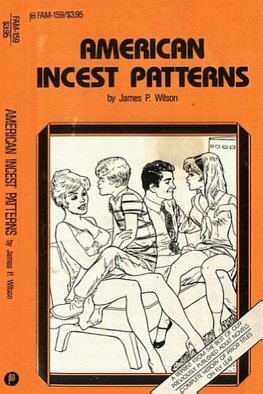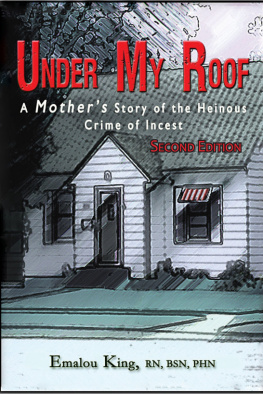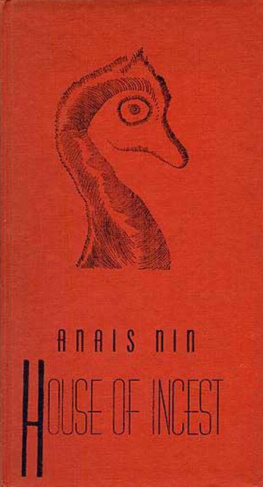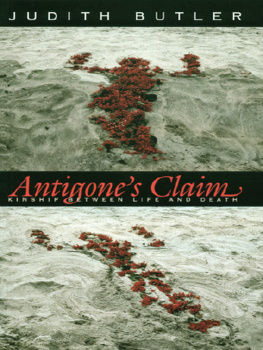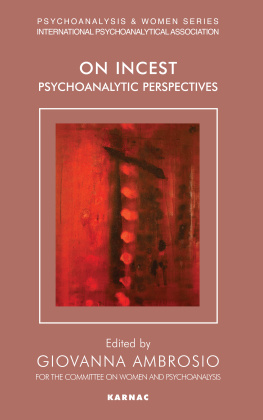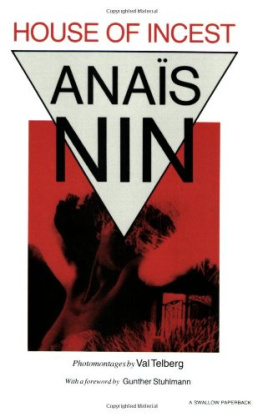Kinship and Incestuous Crime in Colonial Guatemala
Kinship and Incestuous Crime in Colonial Guatemala examines social relations in colonial Guatemala through the lens of incest. Using a combination of qualitative and quantitative analyses of incest trials from the Spanish secular courts, this study shows that incest codes were not homogenous nor were its various forms equally condemned. Further, incest codes and the criminal process impacted the articulation of kinship and contributed to the racialization of kin behavior. Colonial actors of all sorts were proficient at using these types of distinctions as they negotiated various crises in their lives. The models of relatedness created within incestuous crime ultimately foreshadowed changes in marriage proscriptions and continued racial polarization following independence from Spain. Overall, this study demonstrates how the lens of incest can add further nuance to our understanding of social relations in a given area. Incest codes force latent divisions between kin to the surface and can provide individuals with multiple avenues to creatively manage interpersonal relationships. They also afford a fruitful arena in which to explore social inequalities in society and mechanisms of culture change. This book will appeal to anyone interested in Latin America or engaged in the fields of kinship, gender, or sexuality studies.
Sarah N. Saffa is currently a Visiting Scholar at Johns Hopkins University.
Routledge Studies in the History of the Americas
10 The Global Perspective of Urban Labor in Mexico City, 19101929
El Mundo al Revs
Stephan Fender
11 The Last Year of President Kennedy and the Multiple Path Policy Toward Cuba
Hkan Karlsson and Toms Diez Acosta
12 The Monroe Doctrine in a Contemporary Perspective
Denneth M. Modeste
13 Free People of Color in the Spanish Atlantic
Race and Citizenship, 17801850
Federica Morelli
14 Hearing Enslaved Voices
African and Indian Slave Testimony in British and French America, 17001848
Edited by Sophie White and Trevor Burnard
15 Kinship and Incestuous Crime in Colonial Guatemala
Sarah N. Saffa
16 Education in Revolutionary Struggles
Ivn Illich, Paulo Freire, Ernesto Guevara and Latin America Thought
Andrs Donoso Romo
For more information about this series, please visit: https://www.routledge.com/Routledge-Studies-in-the-History-of-the-Americas/bookseries/RSHAM
First published 2021
by Routledge
52 Vanderbilt Avenue, New York, NY 10017
and by Routledge
2 Park Square, Milton Park, Abingdon, Oxon, OX14 4RN
Routledge is an imprint of the Taylor & Francis Group, an informa business
2021 Taylor & Francis
The right of Sarah N. Saffa to be identified as author of this work has been asserted in accordance with sections 77 and 78 of the Copyright, Designs and Patents Act 1988.
All rights reserved. No part of this book may be reprinted or reproduced or utilised in any form or by any electronic, mechanical, or other means, now known or hereafter invented, including photocopying and recording, or in any information storage or retrieval system, without permission in writing from the publishers.
Trademark notice: Product or corporate names may be trademarks or registered trademarks, and are used only for identification and explanation without intent to infringe.
Library of Congress Cataloging-in-Publication Data
Names: Saffa, Sarah N., 1985 author.
Title: Kinship and incestuous crime in colonial Guatemala / Sarah N. Saffa.
Description: New York, NY : Routledge, an imprint of the Taylor & Francis Group, an Informa Business, 2021. | Series: Routledge studies in the history of the americas; 15 | Includes bibliographical references and index.
Identifiers: LCCN 2020022673 (print) |
LCCN 2020022674 (ebook) | ISBN 9780367464424 (hardback) |
ISBN 9781003028789 (ebook) | ISBN 9781000172621 (adobe pdf) | ISBN 9781000172638 (mobi) | ISBN 9781000172645 (epub)
Subjects: LCSH: IncestLaw and legislationGuatemalaHistory. | Sex crimesLaw and legislationGuatemalaHistory. | PaternityGuatemalaHistory. | Kinship (Law)GuatemalaHistory.
Classification: LCC KGD5564 .S24 2021 (print) |
LCC KGD5564 (ebook) | DDC 345.7281/02536dc23
LC record available at https://lccn.loc.gov/2020022673
LC ebook record available at https://lccn.loc.gov/2020022
ISBN: 978-0-367-46442-4 (hbk)
ISBN: 978-1-003-02878-9 (ebk)
Typeset in Sabon
by codeMantra
Introduction
In 1810, Jos Rumualdo Fuentes denounced his father Vicente to colonial authorities for the rape of his wifeVicentes daughter-in-lawon two separate occasions. tried to interrupt the sexual violence, evidently referring to Vicente as her father in the process. However, Vicente had retorted that he was not her father, and her efforts to impede his attacks were ultimately unsuccessful. Rosala believed she was pregnant from their union, though this turned out to not be the case. Vicente initially denied the accusation, suggesting that Rosala was using him to cover up a sexual relationship with another man. However, he eventually admitted to the crime. Like many victims of sexual assault, Rosala was equally on trial, and debate ensued as to whether or not she consented to the incest. Both Rosala and Vicente were Indians, and defense counsel on either side drew from colonial constructions of Indianness in their attempts to exculpate their clients. Still, in the end, Vicente was sentenced to four years of imprisonment and twenty-five lashes, and Rosala to two months of interior service in the Beaterio de Indias (house of pious Indian laywomen) and spiritual exercises. There was also a mandate for the habilitation of their marriages, an ecclesiastical process that allowed spouses to resume married life with one another. As it turns out, the story of this Poqomam Maya family resonated with those of many other families in colonial Guatemala. And, taken together, episodes such as these shed light on the lived experience of kinship and its intersections with a colonial regime.
WesternersGuatemala was not always shared, nor were its various forms equally condemned. Further, incest codes and the criminal process impacted the articulation of kinship, with colonial actors often using the norms and nuances related to incest to their own or anothers advantage. These variables also contributed to the racialization of kinship models, as individuals drew from assumptions about a relationship between Indianness and incest, even in the face of evidence to contrary. Overall, incestuous acts and the legal proceedings surrounding them reflected and constituted various aspects of social relations in colonial Guatemala and prefigured elements of social life following independence from Spain.
Theory, Method, and Context
Colonial Guatemala was a region within the viceroyalty of New Spain, which included territories within the southern United States, Mexico, Central America, and the Caribbean and Philippine seas. The Kingdom of Guatemala included the area between modern-day Chiapas and the Costa Rica-Panama border. Territories within todays nations of Guatemala, El Salvador, and Belize roughly formed the province of Guatemala within the larger Kingdom of Guatemala during the seventeenth century. Following the establishment of the intendency system in the late eighteenth century, El Salvador became its own intendency, and the province of Guatemala was reduced to areas within present-day Guatemala and Belize. All of the cases analyzed in this study took place within this province and span the years 16821821, the year in which independence from Spain was declared.



